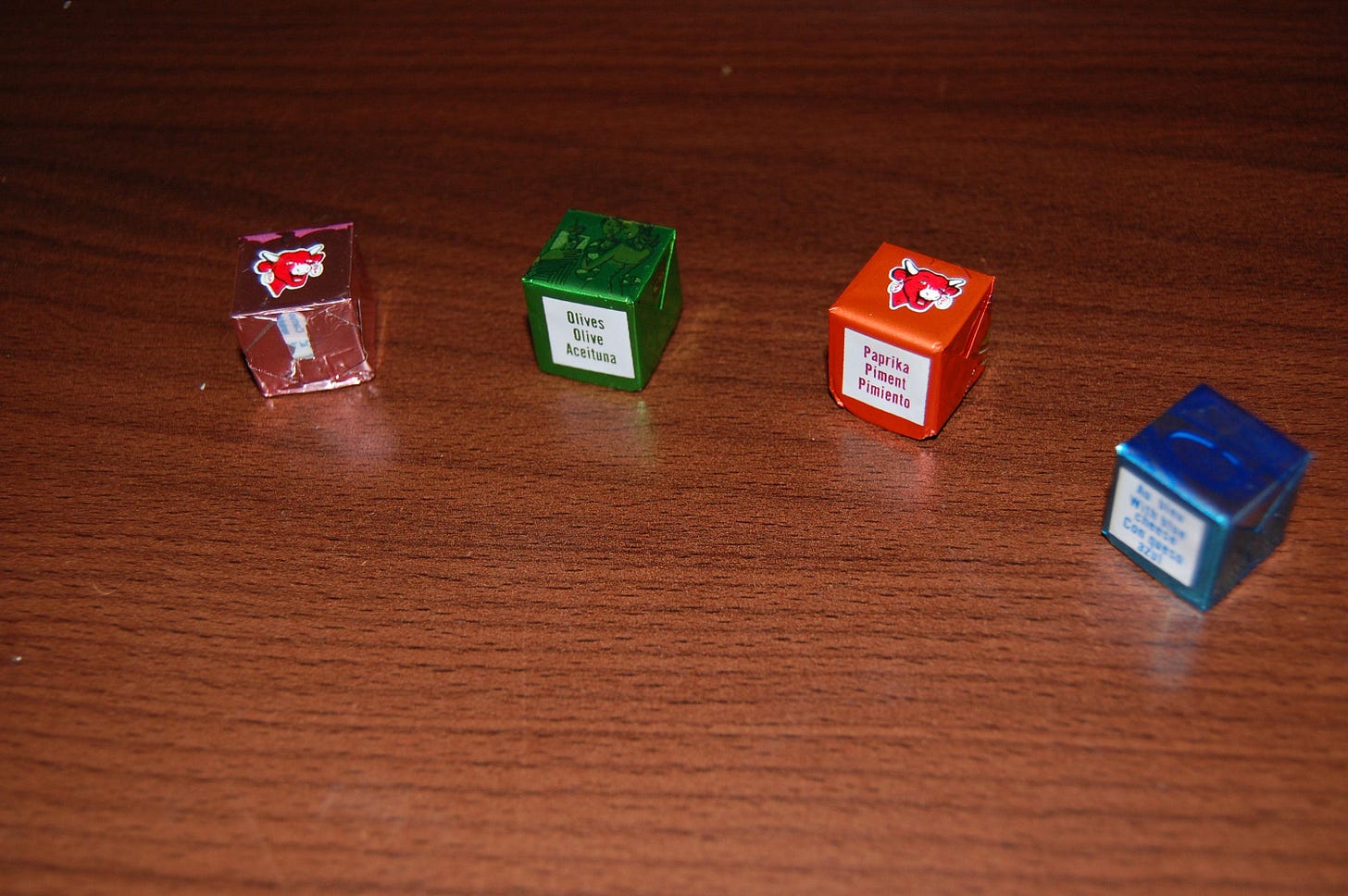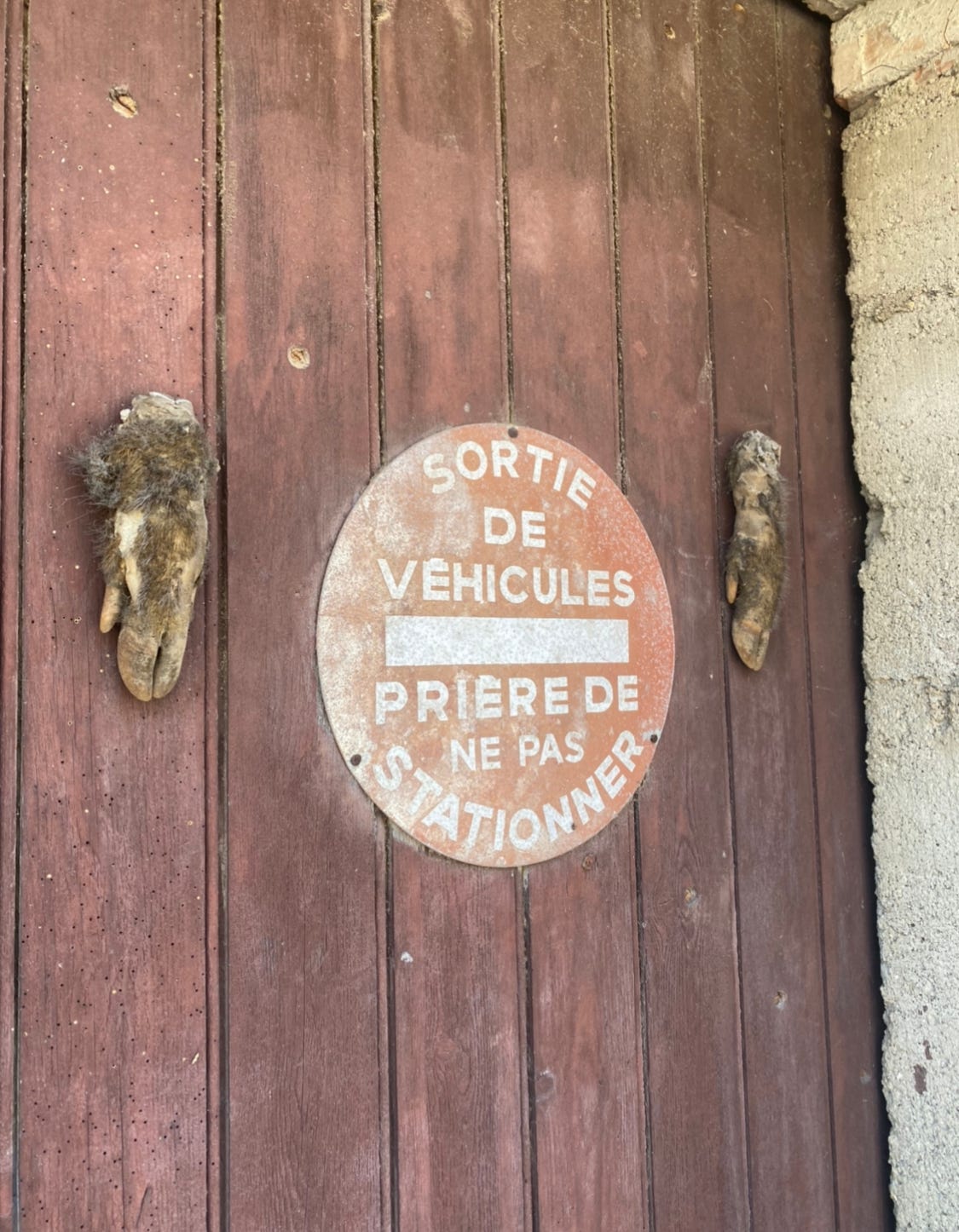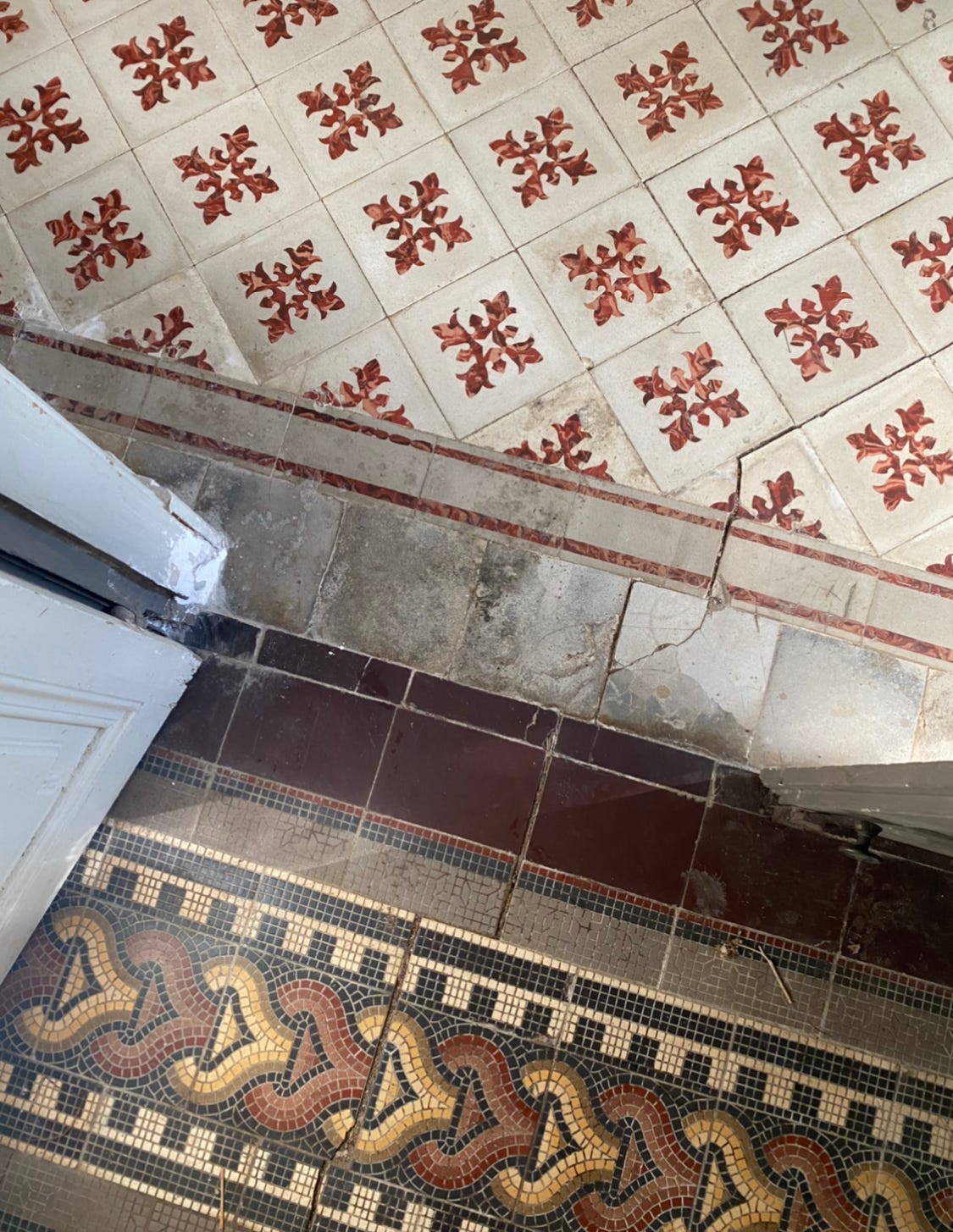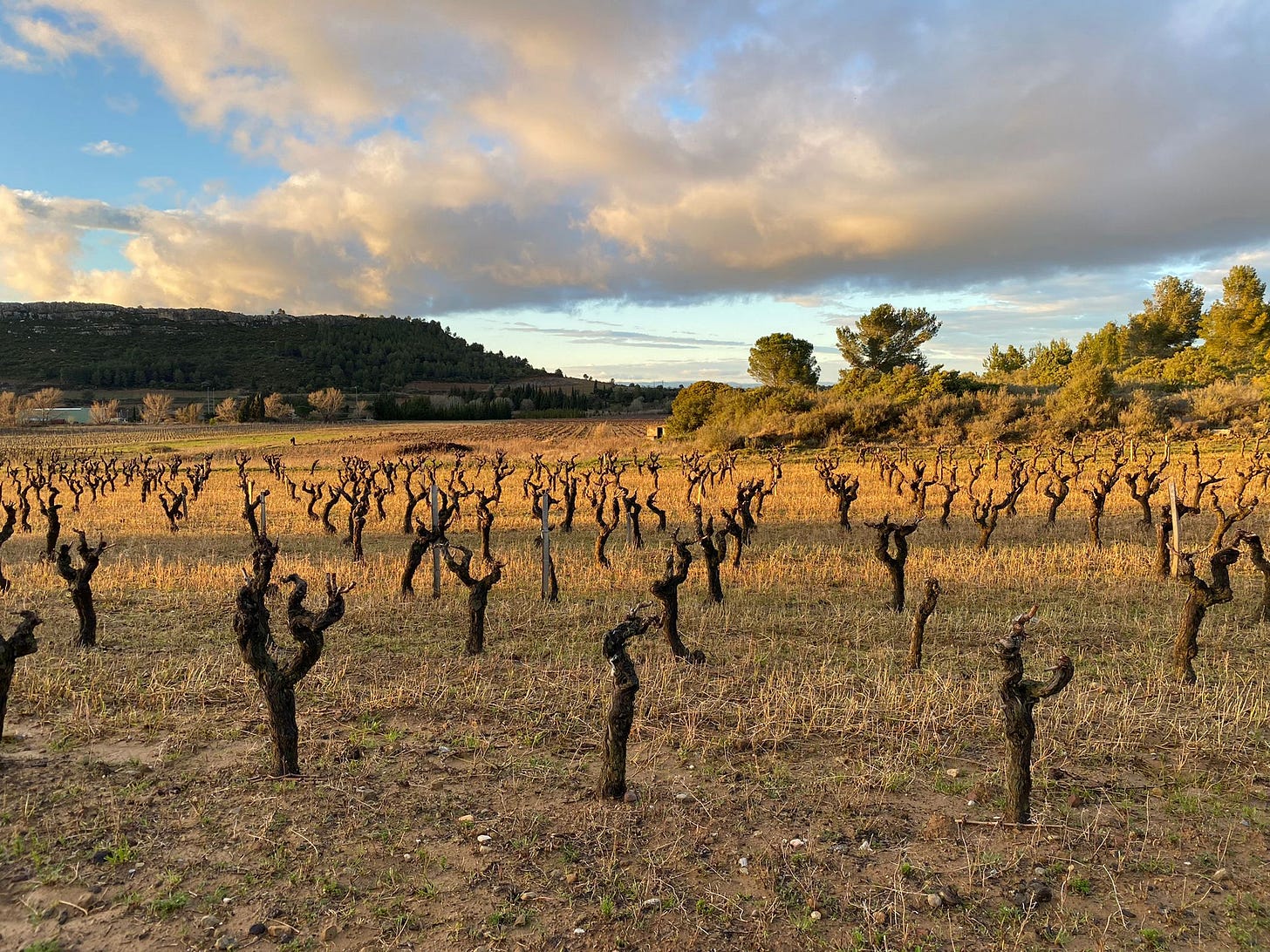Ómós Digest #74: Life lessons through customs.
By Cúán Greene.
Hello!
Thanks for joining us! Today’s article is free to read. However, the Ómós Digest is a reader-supported publication, of which all contributors are paid. Please consider supporting this continued writing, research, and expanding our amazing team by upgrading to a paid subscription for €5 a month or €50 a year. This newsletter brings you on that journey about the food you were looking for, or perhaps never knew existed. It is our quest to expand on what we don’t know and to share with those who care.
A mission circulating some culinary circles of late, is to define what exactly represents Irish food and what Irish food can become? Although I feel this is a lifetime's work, subjective to namely people, place and experience, I have spent a period of my life living in France as a teenager, where I was exposed to certain cultural events and notably customs that have had a profound impact on how I feel about food. How experience and the absorption of those mentioned below are adopted from one generation to the next, might hold significance for how Irish food develops in the future.
Introducing the Apéri-cube.
A very evident cultural difference between the French and the Irish is marked by the conversation at the table. Traditionally speaking, table conversation in Ireland surrounds a handful of matters: the weather, sport – the GAA, Ireland’s World Cup qualifying hopes and miseries, the working day, the neighbours, the County Council and Irish politics which inevitably circles back to the GAA. But, on the topic of food, other than ‘this is lovely mammy’, up until this point, in Ireland, gastronomy has been considered an afterthought, and mealtimes were a time for sustenance.
Being honest, I had far from a traditional upbringing. When we moved to France as a family in 2002, escaping the helm of the Celtic Tiger (Ireland’s era of economic boom from 1995-2007), an era of peak ‘notions’ to which my parents wanted no part in, that transpired into placing a higher importance on food and cooking than might have been done in the past. My parents have always had an interest in food and I consider myself fortunate to have always eaten well. But, when we moved to the very heart of rural France for 3 years (a reminder of my parents’ lack of convention), we soon realised that food was the centre of everyone's existence and with that, a focal point of conversation imbued in meaning. Although a very un-French thing to do, but desperate for interaction (and want of craic), my parents would invite the locals over for dinner. Typically in France, one is invited over for apéritif (and not for a meal) between the hour of 6-7pm, where a select few beverages are made available along with a whole plethora of snacks and bites, either made at home but more commonly shop bought. You were told to arrive on the hour and many did (we were often a little late). However, most peculiarly, nobody would receive a drink until everyone had arrived as a mark of respect for the drink to be opened, not the people… Once everyone arrived, the ‘selected bottle’ would get its introduction and be opened before an entire discussion about it and its accompaniments would embody the entire hour (realistically now 25 minutes remaining). Come the demise of ‘apéro hour’ it was expected we all leave and have dinner at our own homes. This custom took us a while to understand, as we returned home famished. Even at the age of 12, this always appeared unusual to me, considering that in Ireland when my parents' friends would come over, they would never leave…
Throughout those three years, my parents undoubtedly (and rather ignorantly) committed a multitude of similar faux pas. Where we lived was a winemaking village and there were people of all classes, sometimes all living on the same street, granted in very different homes. The domaine owners who often came from old money and regarded themselves as a cut above the rest, lived in grand houses. On the rare occasion to be invited in, it was like entering a time warp. Educated winemakers who were employed for their skills and respected for their gallant work, lived in more modest homes. And then there were the ‘Vendageurs’ or seasonal pickers. They migrated for work mostly from the poorest communities within Portugal and were considered outsiders who made do with basic homesteads, rented to them by the proprietors of the domaines. Lastly, were all of the other inhabitants that made up a village: the pharmacist, the butcher, the baker etc... Although the only interaction between these classes might be a professional exchange or brief hello on the street, my parents, an anomaly classified somewhere in the middle perhaps, would invite them all over to our house, in complete ignorance or lack of desire to conform to the fact that this community had historically been segregated by class. If that wasn’t enough, being invited to our home was an experience in itself. Modern French houses are often stripped of character, where the emphasis is placed on cleanliness over charm or tradition. White floor tiles, white walls, no shoes past the front door, leather couches which encircled giant televisions being the house's focal point. Ironically, in contrast to the lack of character, because this was rural France, and because almost every home participated in la chasse or the seasonal hunt, this equated to a wild boar's head or hoof or two, displayed proudly on the white wall next to the gun responsible for its slaughter. Bon apéro!
My parents had effectively purchased an enormous ruin at the very heart of this village with no electricity or heating to speak of. It was the talk of the town. Who were these peculiar people? Frankly the locals couldn’t quite figure us out. Mum and dad had put their entire life savings together to purchase it and little money remained for the vast amount of renovations and upkeep the building required. For the first year, an extension cord ran from our neighbour’s house, which powered a refrigerator and a plugin electric stove. I recall we later acquired a second-hand toaster. Our heat source came from the enormous wood-fired teal fireplace in the kitchen, and another in the room across the hall. There was no plaster on the walls, the bannisters were in decay, and a layer of dust would settle on bookcases and window ledges after a day or so.
Despite all of that, the house had a wonderful aura. Built in the early 19th century, it was originally home to the Dupuy family who were well respected winemakers within the Languedoc region. The house was adorned with beautifully detailed wooden doors (which had a key the length of your forearm), ornate panelling and a concrete cast spiral staircase – quite ironic as my parents didn’t really have the money to do it up. However, my mother has always had a great eye and each weekend she would spend either gardening or taking us to the local brocantes (yard sales), markets and second hand shops in the hope of coming across a ‘gem’ or a ‘find’ as she liked to call them. Today, the house is full of beautiful old and repurposed bed frames, door handles, cupboards and lounging chairs; one man’s trash, my mother saw value in, and a far cry from the characterless newly built homes which surrounded the expanding village. When I think back, the house was the perfect playground for us children. We would race up and down the stairs, slide across the original tiles in our socks, dodge pets, charge into the expansive garden and further still to build forts and marvel at the fact that German bullet holes could be seen from the building’s exterior walls - a reminder of WW2, where the village had fallen into Nazi hands. Without question, here we grew up slower, our innocence and childhood preserved for longer.
So when ‘the French’ hesitantly but inquisitively accepted the invite to our Irish madhouse, they were met with both the alarming shock at who they would be sharing a table with (their neighbours), coupled by my family’s seeming indifference with living in a home that was in clear disarray. Collectively, the experience was nothing other than disarming. Everyone found hilarity in my father trying to communicate through broken French, which usually amounted to an amalgamation of enthusiastic miming, loud puffs, sighs, and words that might have had the phonology of French, but certainly lacked any structure or grammar. However, to the French’s surprise, dad certainly made up for his lack of fluency with his cooking; the aromas of roasting meats greeting them at the doorway. If he wasn't such a good designer, I’ve no doubt he would have made a great chef. And that, paralleled with the craic of the Irish, made our very unconventional home, quite the party house.
Year two in France was significant. While the extension cords well and truly remained on the second floor, the ground floor was now on the grid. We could purchase an oven which meant that dad’s culinary repertoire could significantly broaden. Lush summer salads and Mediterranean stovetop dishes took the back seat just in time for winter, replaced by hearty braises, roasts and dishes au gratin, the kind of one-pot bakes we had dreamt about. Come Halloween or St Patrick's day, we would invite a whole contingent of French over to celebrate our indigenous festivals and share our customs and food offerings with them. They were blown away by my father’s ability to cook lamb medium-rare, roast potatoes to perfect crispness, and produce plate-lickable sauces.
Note to the reader when cooking for the French: as stressful as the day might present itself, and no matter how vital you think your wine choice, bobbing apple or plate-lickable sauce might be, forgetting the bread is an act of heresy.
Like many cultures, it is rude in France to come empty-handed. Often this comes in the form of some kind of pudding that celebrates the region’s seasonal fruit. Peach or apricot tarts filled with creme patissiere and wild cherry pies in late summer. Plum clafoutis, tarte fine aux pommes or facon tatin in autumn and frangipane and pear to name a few. While my sweet tooth loved everything about these, what amused my family was not the quality of the cooking itself (at times that was actually amiss), but the level of thought surrounding every culinary decision made throughout the process of that dessert. Not only was there pride in the product, but a communal level of interest shared by the table, in the making of it too. Where did the fruit come from? Were they picked or purchased? And if the latter, did you get a good price? What supermarket did you get them from? Where did the recipe derive from? Where do you keep your eggs? Whether this was to appease self-interest, show moral support or simply an act defined by cultural upbringing, the interest was ever present. Product and process took precedence over result, so much so that my family and I questioned at times, what all the fuss was about? The baker took immense pride in the quality of pastry too, which almost indefinitely was shop bought. In France, pastry is seldom made at home. Like the apéritif market, France's pastry market is expansive, with an entire aisle dedicated to all kinds of pre-made pastry dough, like we here in Ireland might dedicate to yoghurt, cheese or… booze. The French even celebrated birthdays differently. In Ireland, it was all about the party but in France it was about the cake. And like pastry, the cake was almost always purchased, not made. A very particular, well thought through pre-booking made to the baker, worthy of deep conversation, where friends and family would come over after dinner to celebrate, not the person, but the le gâteau…







A really lovely read.